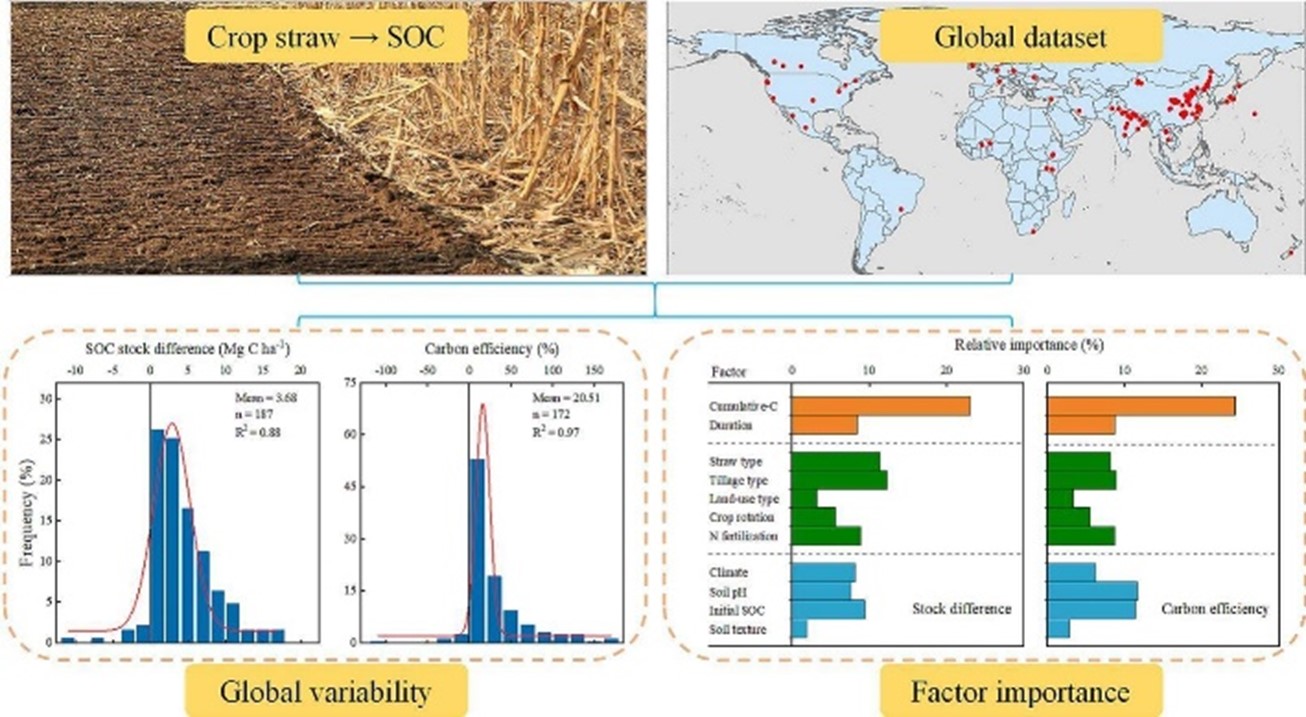Magnitude and efficiency of straw return in building up soil organic carbon: A global synthesis integrating the impacts of agricultural managements and environmental conditions
Sources of informationScience of The Total Environment | June 1, 2023
Straw return (SR) is a climate-smart agricultural practice recommended for enhancing soil organic carbon (SOC). To assess its effectiveness, researchers from China Agricultural University conducted a global analysis using 327 observations from 115 sites.
Their findings reveal that SR increased SOC by an average of 3.68 Mg C ha−1, with a carbon efficiency of 20.51%. Interestingly, less than 30% of the SOC increase was directly attributed to straw carbon input. The magnitude of SOC changes from SR increased with higher straw carbon input and longer experiment duration, while carbon efficiency decreased.
No-tillage and crop rotation practices were found to enhance the SOC increase through SR, especially in acidic and organic-rich soils. Machine learning analysis identified the amount of straw carbon input as the most critical factor, while local agricultural practices and environmental conditions determined regional variations.
These insights support tailored, region-specific SR policies for maximizing SOC increment while considering environmental impacts. By optimizing agricultural practices, farmers can accumulate more carbon and promote sustainable agriculture.
Graphical abstract

Viewed Articles
Science of The Total Environment | June 1, 2023Straw return (SR) is a climate-smart agricultural practice recommended for enhancing soil organic carbon (SOC). To assess its effectiveness, researchers
Read More
November 07, 2022 | Molecular Plant | Introduction: Climate change and population growth necessitate a transition from traditional phenotypic selection to data-driven "smart breeding". A research tea
March, 2024 | Frontiers in Plant Science | Introduction: Developing climate-smart agriculture requires cost-effective methods to characterize crop growing conditions. A research team from the America
August 03, 2023 | Nature Reviews Methods Primers | In the study conducted by researchers from Delft University of Technology and Wageningen University & Research, the focus is on introducing the conce
February 28, 2023 | Advances in Applied Energy | Introduction: Researchers from Cornell University in USA proposed the use of novel artificial intelligence (AI)-based control framework to enhance the
July 06, 2023 | The Plant Genome | Introduction: Researchers from CIMMYT (Mexico) and Mamoré Research and Innovation (UK) address a critical gap in wheat breeding research: the limited consideration






